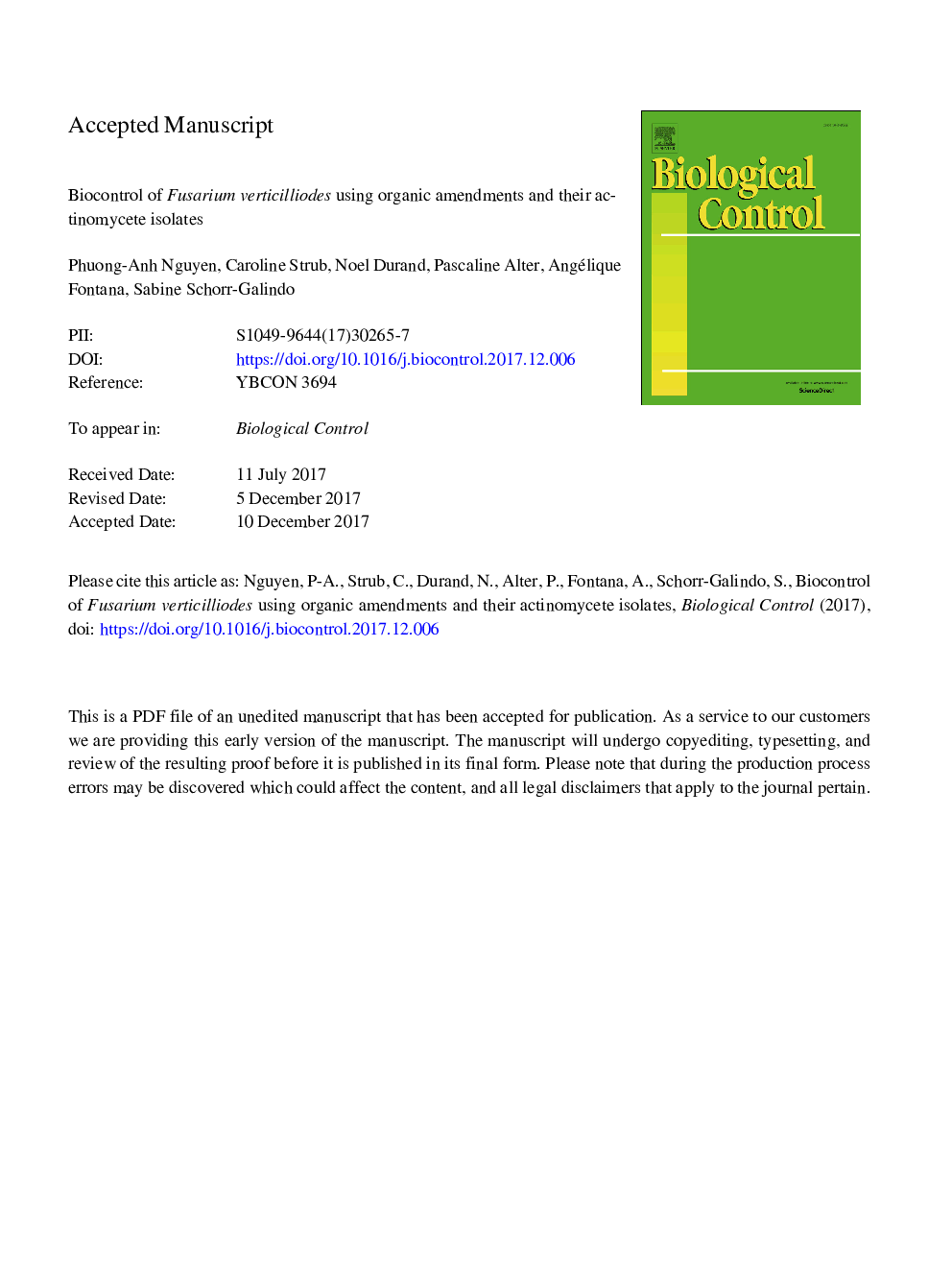| Article ID | Journal | Published Year | Pages | File Type |
|---|---|---|---|---|
| 8877727 | Biological Control | 2018 | 31 Pages |
Abstract
Results demonstrated that the amended soils with different organic amendments exhibited a higher inhibition rate of Fusarium verticillioides growth than the reference soil. They were able to inhibit the fungal pigment and spore productions which are the major mean of survival and dispersion of this fungus. The fumonisin production was strongly reduced by the metabolites produced by the amended soils' microbiota, up to 68.7% and 92.5% for FB1 and FB2 respectively. Actinomycete strains isolated from these amendments were identified as Streptomyces and were also tested for their antifungal potential. The fungal growth was reduced up to more than 60% in the presence of extracellular metabolites of several Streptomyces strains. In confrontation assays, most of the Streptomyces strains inhibited strongly both fungal growth and fumonisin production. The FB1 and FB2 amounts were decreased at best, by up to 87.5% and 98.2% respectively, depending on the actinomycete strains and fungal culture time. These results are promising for the use of these biocontrol agents, and especially some actinomycete strains, as tools to reduce fumonisin contamination in cereal crops and derived products.
Related Topics
Life Sciences
Agricultural and Biological Sciences
Agronomy and Crop Science
Authors
Phuong-Anh Nguyen, Caroline Strub, Noel Durand, Pascaline Alter, Angélique Fontana, Sabine Schorr-Galindo,
